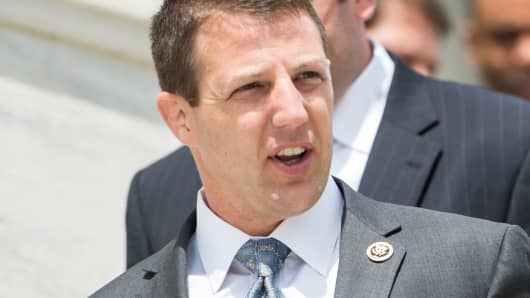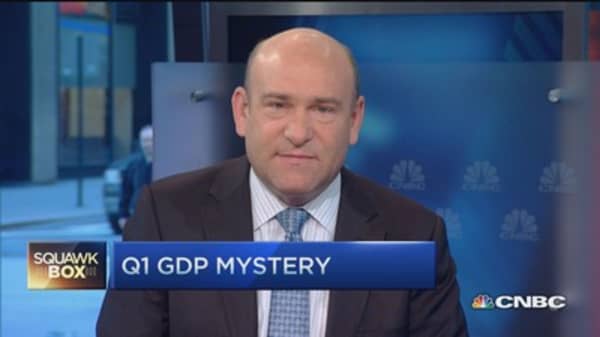The deep dive into economic indicators that are probably far beyond the average American's understanding is valuable and appreciated; but, as a small business owner, I have lived this reality, and I believe there may be a simple factor that could help answer this question: first-quarter tax payments.
Every year, small businesses must be prepared to make three tax payments between Jan. 15 and April 15. Fourth-quarter estimated taxes are due Jan. 15 of the new year, and businesses must be prepared to make two separate tax payments—first quarter estimated tax and yearly income tax — on April 15.
Read MoreDalio: This IS 'secular stagnation'
For a small business that uses cash-basis accounting, having the funds to pay Uncle Sam these three payments means less capital available for investments, both in the market and back into the company, during the first quarter of the year.
Let's explore the impact this could have on the entire U.S. economy.
According to the U.S. Small Business Administration (SBA), small businesses represent 99.7 percent of all employers across the United States and create more than half of the nonfarm private gross domestic product (GDP). In a survey conducted in March, the National Federation of Independent Businesses (NFIB) found that optimism among small business owners had hit an all-point low since last year. The NFIB's Small Business Optimism Index, which is based on ten seasonally-adjusted survey indicators, fell 2.8 points since June of 2014. The greatest net drops were seen in current jobs openings and business owners' plans to make capital outlays.
Read MoreWhy I've taken some money out of the market: El-Erian
Let's take the first drop. We have small businesses representing 99.7 percent of all employers. And we have a NFIB survey that shows drops in small business job openings in the first quarter. During this time, small businesses are also planning to make three major tax payments to the Internal Revenue Service (IRS). Is the relationship between preparing for three big tax bills and a drop in job openings merely coincidence?




